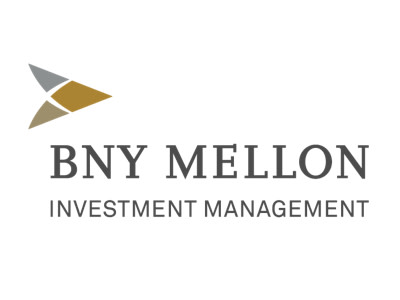James Lydotes and his team hunt around the globe for the best income opportunities
Individual company analysis is coupled with thematic and ESG research
Global income funds, including this one, performed well in 2022 but fell behind growth funds in 2023
The fund does not currently feature on the Wealth Shortlist of funds chosen by our analysts for their long-term performance potential
How it fits in a portfolio
The BNY Mellon Global Income fund aims to grow income and capital over the longer term by investing in companies from around the world. The fund managers aim to identify the driving forces behind future growth opportunities, such as digitalisation, and then invest in companies they believe can benefit. Typically, they invest more in ‘value’ stocks which means the fund could work well alongside ‘growth’ orientated funds and provide global diversification to an income-focused portfolio.
Manager
This fund has been managed by a team of three since February 2023 with James Lydotes becoming the lead manager after the former Head of Equity Income Ilga Haubelt left the firm. Paul Flood was also a co-manager however, left the team to focus on his new role as Head of Mixed Assets Investment and the multi-asset funds he manages.
Lydotes has been Head of Equity Income since 2023. He has been with BNY Mellon for the majority of his career, joining in 1998 after graduating from Syracuse University. As well as being the lead manager for this fund, Lydotes also manages the global infrastructure fund and small cap euroland fund.
Jon Bell joined Newton, part of BNY Mellon, in 1995 after graduating from Cambridge University and has spent much of his time managing global and multi-asset portfolios. Bell’s time is divided between portfolio management and keeping investors updated on the fund’s activities.
Robert Hay is the final co-manager for the fund. He began his career in the private client investment division at Newton in 2000 and has managed a variety of global equity mandates.
Lydotes has the final decision-making power should a consensus not be found between the three managers. However, the team do make use of a large pool of global equity analysts for idea generation and opinions. Given the resources available, we think the managers are able to dedicate sufficient time to this fund.
While the co-managers have lots of experience between them, they have only worked together on this fund for a very short period of time. Even though Bell and Hay have been working in the equity income team since 2020, the level of manager turnover on this fund has been higher than we would typically expect during this time.
Process
The managers believe the best way to achieve long-term growth is through the compounding (reinvesting) of dividends over time. They have a strict buy and sell discipline and any company share considered for the fund must yield at least 25% more than the benchmark – the FTSE World Index. If the yield falls below the benchmark it must be sold.
The team aims to avoid companies with unsustainable yields. As a result, they invest in ‘quality’ companies which have a dominant market position, sensible balance sheets and can generate cash. They must also understand how companies will benefit or struggle to adapt to an ever-evolving society. The managers assess if these businesses are supported by thematic tailwinds like digitalisation and the transition from fossil fuels to green energy.
The companies the managers invest in are broadly split into four buckets of ‘controversy’.
‘Troubled Compounding Machines’ form the foundation of the fund, with around 36% invested here. It consists of companies in industries that others can’t easily enter due to legal, geographical, or cost barriers for example. These may be good businesses with growth potential but are hampered by short-term obstacles which the managers are prepared to look past.
‘Ex-growth Cash Generators’ includes companies whose best days of growth might be behind them but are underrated by other investors, even though they can still efficiently generate returns. The third bucket focuses on ‘Capital Intensity’ and is home to service sector businesses such as banks and insurance firms. Finally, ‘Profitability Transformation’ tends to include more economically sensitive companies.
Most of the fund is invested in developed markets, with around 55% invested in North America and a further 34% in Europe and the UK. It also invests in some higher-risk emerging markets, such as Indonesia. The fund currently holds 57 names out of the thousands that make up the investable universe.
Over the last couple of years, the managers believed that inflation and interest rates would rise. They now believe that inflation will remain sticky and interest rates will remain elevated. Since the end of 2020, they’ve increased the fund’s investments in financials and consumer staples companies, which they believe could benefit in this environment. New investments include UK beverage company Diageo, US consumer health company Kenvue, Hong Kong insurance company AIA and US regional bank First Horizon.
On the other hand, the team sold a number of companies, where yields have fallen and the income on offer is no longer as attractive. These include UK accounting and software company Sage, US courier and delivery company FedEx and American Petroleum refining company Marathon Petroleum. The team also sold companies where the investment case has changed. This includes Hong Kong company Link Real Estate Investment Trust and Swedish bank Svenska Handelsbanken.
Investors should be aware that charges are taken from capital, which can increase the yield but reduces the potential for capital growth. The managers also have the flexibility to use derivatives, this can increase risk.
Culture
Newton Investment Management is responsible for this fund and operates under the umbrella of BNY Mellon. Equity income investing is an important part of Newton’s business and, alongside this fund’s three co-managers, there are other experienced portfolio managers in the equity team, focused on different regions.
BNY Mellon is a large, US-based firm so the managers have plenty of analysts and resources at their disposal. Until mid-2019 the fund operated under the Newton banner but following a rebrand the fund has since changed to that of the parent company.
We like that the fund managers are incentivised in a way that aligns their interests with those of long-term investors. That said, there have been some significant fund manager departures in recent years, and we hope the current team will provide some stability for investors.
ESG integration
The team at BNY Mellon (formerly Newton) believes responsibly managed companies are better placed to achieve sustainable competitive advantage and provide strong long-term growth. They’ve invested a significant amount of time and resource into their Responsible Investment proposition in recent years, including the hire of Therese Niklasson, the firm’s Global Head of Sustainable Investment, who we have long held in high regard.
A dedicated Responsible Investment team exercises the firm’s voting rights, coordinates engagement with investee companies and contributes to public debate on Environmental, Social and Governance (ESG) matters. The team reports on their engagement progress in their annual Responsible Investment and Stewardship report, and their quarterly ESG report (both available on the Newton website). The ESG Report also includes some of the most comprehensive voting rationales available across the industry.
The fund management team believes responsibly managed companies are better placed to achieve consistent competitive advantages and provide strong long-term growth. This fund is not exclusions-based, which means it can invest in any sector. That said, the managers won’t invest in companies where they believe poor ESG management could impact the long-term sustainability of a company’s dividends. For example, they don’t view some energy companies as sustainable, and tend to avoid areas such as gambling.
There is also a ‘Sustainable’ version of this fund, which follows a similar investment philosophy and process as this fund but excludes certain industries.
Cost
The fund is normally available for an annual ongoing charge of 0.79%. We negotiated a 0.24% saving though, so it’s available on the HL platform for 0.55%. Part of the fund discount is achieved through a loyalty bonus, which could be subject to tax if held outside of an ISA or SIPP. The HL platform fee of up to 0.45% per year also applies.
Performance
Prior to 2022, global income funds didn’t perform as well as the broader global market or as well as funds focused on growth for several years. This is partly because the US market and technology companies with the potential for high growth performed well, but most global income funds don’t invest as much in these areas as they aim to reinvest in future growth opportunities rather than paying higher dividends.
However, performance since 2022 has been more mixed, although the fund did perform better than both the global stock market and the average income fund in the IA global income sector in 2022. Much of this outperformance occurred between May 2022 and December 2022 when both value investing and income stocks were in favour with investors.
Over the last 12 months though the fund has underperformed the average fund in the IA global income sector returning 6.19%* vs 11.13%. Please note past performance isn’t a guide to future returns, this is a short period on which to assess performance and there have been the recent manager changes noted above.
A number of the healthcare stocks that the fund invests in didn’t perform very well over the last 12 months. German company Bayer AG, French company Sanofi and Swiss company Roche all underperformed. Whereas Taiwanese semi-conductor company MediaTek performed much better as a result of the increased focus on companies who can benefit from the advancements of artificial intelligence. US insurance company Allstate also performed well after being able to successfully increase prices.
Many companies had to cut or suspend their dividends in 2020 due to the COVID-19 outbreak, and this means the income the fund paid to investors fell by 10%. The income paid out since has risen and dividend payments in 2023 reached their highest level since the fund’s inception. The fund currently yields 3.17%. Yields and income are not guaranteed and will change over time.
Annual percentage growth
30/04/2019 To 30/04/2020 | 30/04/2020 To 30/04/2021 | 30/04/2021 To 30/04/2022 | 30/04/2022 To 30/04/2023 | 30/04/2023 To 30/04/2024 | |
|---|---|---|---|---|---|
BNY Mellon Global Income | -2.84% | 18.10% | 15.62% | 6.22% | 6.19% |
IA Global Equity Income | -5.07% | 26.29% | 8.66% | 3.93% | 11.13% |


